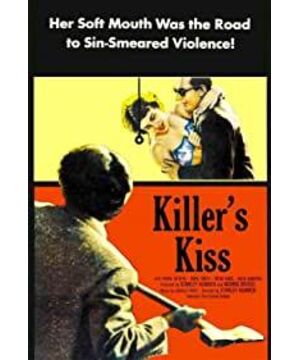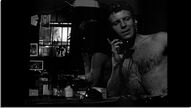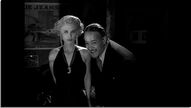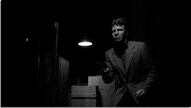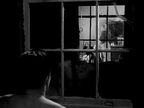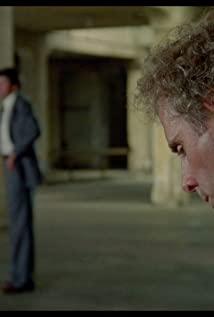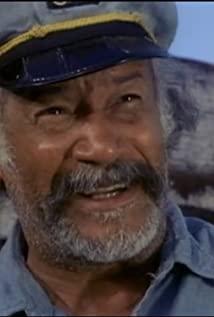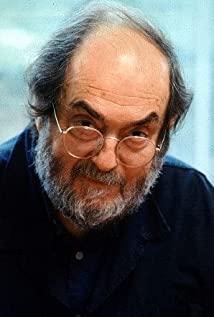This article mainly puts some comparative pictures made by me. The film critics and Kubrick’s film poetics are often overwhelming. The narration of his early films shows the talents and talents commensurate with Shakespeare. Zai's voice is condensed into a more solid and profound silence, like a poetry that relies on the lens and atmosphere to express emotions.
Kubrick once believed
A truly creative person will not be constrained by the existing framework
The joking thing is that these rebels sometimes do create new frames, and then stay in them for a long time. Compared with other artists, they have a nearly conservative obsession with self-shaping frames, and their films will be more obvious. The repercussions of personal imprints (often based on personal preference and private experience), and therefore more rules to follow. The logic contained in it is also very simple. Mortals are not gods and cannot be born out of nothing. Mortals are just splicing. Therefore, inheritance and reliance are unavoidable for creation. If you don't learn from others, you can only learn from yourself.
This kind of framework-let's say style-is a long-standing river, its breath is far older than every waver, every creator and viewer unconsciously bathes in it, draws nourishment, bears gravity, yes Its resistance is often manifested as an "anxiety of influence." Scholars who are engaged in comparison try to sublime the influence into a fatalistic existence, thereby drawing a blueprint for the flow of this river. This kind of cognitive method does reveal some fruitful pictures, juxtaposing the works of different creators. , Or examining the works of the same creator in different periods, the repetitive clues in the effective connection enlighten more than a preferred interpretation space-a flow of inertia.
In Kubrick's second feature film "Kiss of the Killer", many of Kubrick's common images and preferences in the expression of film shots are shown, and these clues will continue to be echoed in his subsequent creations.
Lovers of floor patterns and op art
The promenade at the entrance of the ballroom in "Kiss of the Killer" and the pattern of the hotel carpet in "The Shining" all hint at the popularity of Op art decoration in Europe and the United States in the 1960s. Kubrick seems to have such a visual aesthetic style. Not exclusive.
The axe is a good tool
In "The Shining", Jack raised his axe to seek revenge against his wife after he went crazy. It happened that in "Kiss of the Killer", when the nightclub owner and boxer David fought between the hangers of the model, the old man also held an axe in his hand.
You can compare and find that the axe in "The Shining" has an extra barbed corner on the back. This may be because Jack needs to pull the axe upside down to rip off the wooden slats in order to open the wooden door. This is for the intensive advancement of the plot. The axe is undoubtedly a good and practical tool.
In "Kiss of the Killer", in addition to fighting back and forth with the spear, the old man also uses an ax to open the iron lock of the wooden door, which is really easy to use.
The quirks of models and dolls
The hanger scene of the model at the end of the fight in "Kiss of the Killer" reminds me of the milk of all kinds of dolls in "A Clockwork Orange". It's hard not to suspect that this is some kind of quirk of Kubrick (you Understand, that aspect).
Boxers on and off the court
Kubrick's 1951 documentary "The Day of the Boxing Match" showed a boxer's life on the day of the match in about ten minutes, which laid a lot for the filming of the boxing match of "Kiss of the Killer" Basically, there are many similarities between the two in terms of performance details and mirroring style, so I won't repeat them here. A very interesting place that I pay attention to is the boxer's off-field and on-field. David in "Kiss of the Killer" lost the boxing match in the field, but he was fighting an old man in a battlefield between the hangers of the models. In Hemingway’s "Hitman," he won countless matches in the boxing ring with his sturdy body, but he was like a piece of meat in the powerless escape. Lie limp on the bed, defeated in the fateful pursuit...
The attention to boxers’ matches and off-field life has been presented in different forms by many other writers and directors. Among the towering buildings and empty streets of the city, the most powerful and powerful boxing mankind is human beings. The hand will inevitably be defeated, just as Monkey King can’t escape the Five Finger Mountain of the Tathagata, but David in "Kiss of the Killer" is a special case of dexterity. In the broadcast of the game, the host mentioned that David had a good education, or It is said that he has a bit of excellent wit and good luck (the accidental run at the door of the nightclub and the manager’s distress are proof of luck), this is also the fact that a small person like him escapes quickly and hides in the city’s labyrinth. The key to be able to defeat the opponent in repeated thrilling games and hold the beauty back.
In addition, it is worth mentioning the inherent tension in the atmosphere of Kubrick's movies, such as the thrilling battle with HAL9000 in space in "2001 A Space Odyssey", and the dream-like illusion in "Open Eyes" , The dangerous enemy camp in "Fear and Desire", the destruction button in "Doctor Strange Love" that concerns the life of the entire human race, the tense atmosphere of the racetrack in "Hitman" and the seemingly seamless robbery plan, including the above mentioned The chasing and boxing matches in "The Day of the Boxing Match" and "Kiss of the Killer"...
I think this inner tension is the manifestation of Kubrick’s near bipolar genius in the film temperament. The fatalistic tension makes his movies often appear as two unknowable forces (often changing forms) diametrically. Because of his close hand-to-hand combat, his attitude towards film performance is close to that of a boxing match. It is no wonder that his early documentaries choose to record boxing matches. This keen observation contains the talent that comes from similar temperaments.
Escape the city? Is there really an exit?
Many films have explored the characteristics of the urban space prison. There may be more articles between the hangers of the models at the end of Kubrick's "Kiss of the Killer". David tricked him into chasing after him by disguising a model puppet. The old man finally escaped and was born. A similar plot is also presented in Scorsese's "After get off work", where he escaped by disguising sculptures during the escape ("Kiss of the Killer" and "After get off work" are also temperamental. There are more similarities, so I won’t repeat them)-Both of these show the wandering and desperate little people in the city. David longs for love and Paul longs for sexuality. This desire for passion and freedom often makes them Deep in the danger of accidents, the mediocre and numb city night showed endless vigor and murder in the unfolding of the movie, as if transformed into a reincarnation arena, pointing to the mutual killing and two-way destruction between people, which is worthwhile It is worth mentioning that the two protagonists finally escaped by disguising themselves as inanimate materials (in "Kiss of the Killer" they are model dolls, and in "After get off work" they are statues and clay sculptures).
This is a particularly ironic and absurd comparison. The numb and impoverished screws in the city yearn for the abundance of love encounters and love, and bravely pursue them, but in the process of pursuing they constantly lower their goals and constantly compromise with reality. The survival instinct forces us to give up all human dignity and desires in crisis, act like animals, look for inanimate matter as a disguise, and finally consciously fall into deeper poverty and alienation, just for the minimum survival . This icy package shows the little people’s powerlessness in the city, or a sense of involuntary control. As shown in the picture below, David thinks he can control his own destiny, but he is forced to survive and pretend to be something else. The face of the doll and the hands hanging above the head suggest that everything looks like a path to an exit. It is nothing more than another kind of prison that has been disguised, and manipulation is everywhere.
In addition, the nightclub owner threw down the fake David in the hanger of the model, thinking that he could escape the prison in the city. This explained the meaning of fighting in Kubrick's film. The arena originated, flowing through the field of boxing fighters, and then to the city hunting that often appears in movies. Everyone is eager to exit, and some seductive rules imply that they can get it after killing that potential enemy. The chance to escape to survive, the story of "Spartacus" tells us that reality has never been the case. ("The Hunger Games" is also an example in this tradition)
In these noir films depicting cities, the city seems to be a kind of memory in the flesh and blood. It is marked with an exit, but it cannot be escaped. It has imprinted its mark on the body of our generation since birth, in the concrete jungle. Among them, the cage seems to be stable, but it is secretly perilous. People born in poverty have no other way to speak except for the numbness that is normal.
Therefore, it is not difficult to understand why the end of "Kiss of the Killer" stays at the railway station forever. The kiss of the two killers seems to forget all the pain and relieve all the depression brought by the city, but the only conclusive thing is that the car The train to the countryside will never arrive.
View more about Killer's Kiss reviews


